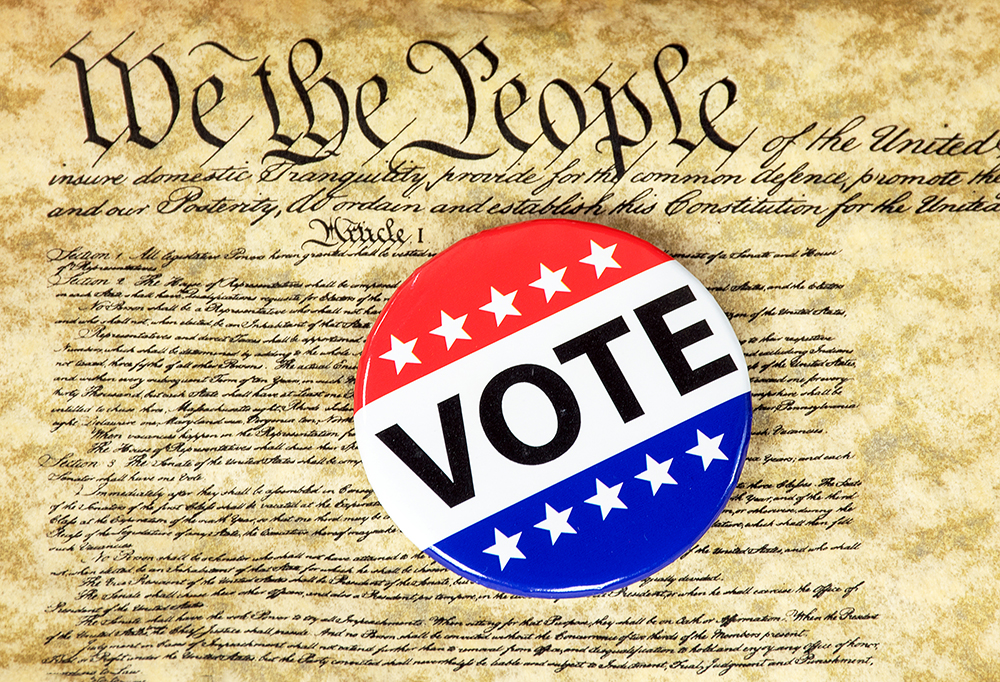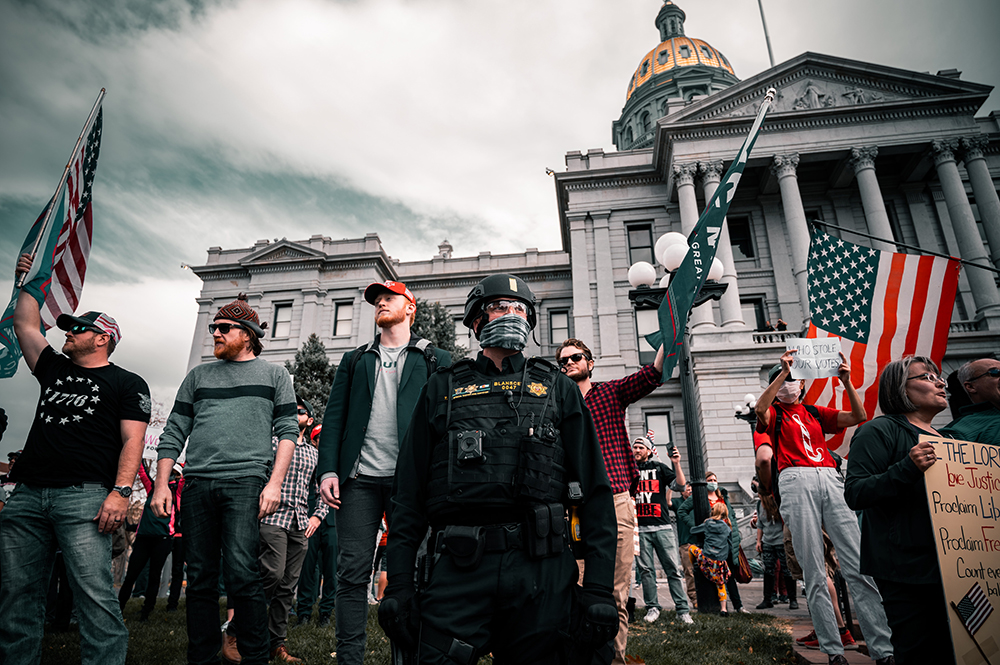In the U.S. there are elections because of our Constitution. There is political bantering over everything, including whether the U.S. is much of a democracy or not. But, make no mistake, starting from the Declaration of Independence, when Thomas Jefferson wrote, “Governments are instituted among Men, deriving their just Powers from the Consent of the Governed,” the vote has always been important, and who, what, when, where, why, and how people vote has always been controversial.
There is no shortage of questions about electoral politics. Speaking with a friend recently I heard about a plot to steal the election by allowing immigrants to vote. It struck me that such claims are both unremarkable (complaints about immigrants and illegal immigrants voting being commonplace, with Trump and others making them since 2016) and ignorant of history. Alien suffrage — the voting of noncitizens — was the norm for most of the country for a long time, even predating the establishment of the U.S. It was common practice from 1704 to 1926 (when it was banned state-by-state) and was not explicitly prohibited by U.S. law until the Illegal Immigration Reform and Immigrant Responsibility Act of 1996. It was not addressed in the U.S. Constitution. State laws for non-federal elections still vary, and there are states where aliens can vote for local and state offices and referenda.
Recent cases about whether states can remove Trump from the ballot are another example. Just as electoral politics changed in the 1920s, after World War I, politics changed following the Civil War. The current arguments being made to keep Trump off the ballot use rules put in place to prevent leaders of the Confederacy from attempting to return to elected office or hold power in the public trust. They could not be trusted to honor sworn oaths.
It is not some liberal conspiracy: six Colorado voters — four Republicans and two unaffiliated — brought the lawsuit. The lead plaintiff was 91-year-old Republican Norma Anderson, who says, “Our democracy is too precious to let a Donald Trump be president and destroy it.” It is easy to forget that the case Trump v. Anderson was a test of legal principles. Does the Constitution (the 14th Amendment, Section 3 in this case) mean what it appears to say, or can legal experts manipulate the language and obfuscate it out of practical application?
The challenge is real. On the one hand we have legal requirements that must balance competing values and principles. On the other we have clear interests and desires, and people regularly disagree about what they want. Ideally, we would be able to trust in due process, but the Supreme Court is now stacked. A quick review of cases like Dred Scott v. Sandford, Bowers v. Hardwick, Plessy v. Ferguson, Buck v. Bell, and Korematsu v. United States showcases the appalling willingness of the Supreme Court to allow the prejudicial restriction of rights and freedoms, depending upon the makeup of the court at those times.
Why should anyone expect fair judicial review from justices who’ve lied about things like reproductive rights?
The presidential election is a practice unlike any other. Candidates ultimately compete for electors in an electoral college — which means the candidate who wins the popular national vote may not win the election (e.g., Hillary Clinton beating Trump in 2016 by some 2.8 million votes but losing the Electoral College vote, plus four others who lost the popular vote but won an election thanks to the Electoral College: John Quincy Adams, Rutherford B. Hayes, Benjamin Harrison, and George W. Bush). In most of the rest of our democracy, we have a principle of equality; Reynolds v. Sims held that the Equal Protection Clause of the Fourteenth Amendment includes “one-person, one-vote.” But the president is not chosen by the popular vote; George W. Bush and Donald Trump both lost the popular vote but managed to become president.
More and more I wonder whose votes count? If you rate voter importance by the attention candidates give them, for example, you discover a hyper-focus on swing states. It is easy to track campaign stops and advertising spending, and it makes sense that candidates spend their time trying to earn the votes of voters that will make the most difference. It is predictable: the closer the polling, the more attention the geography will receive. But safe states receive no campaign attention at all (in 2020 there were 33 safe states).
It is winner-take-all, and it is good to be a winner. I just fear that this all further drives the polarization that is tearing our social fabric apart.
There are many voicing legitimate grievances and fears over a candidate who has declared an interest in being a dictator. It is worth remembering that when We the People disagree, we can petition the government and force change. If we decide that we want all our votes counted, we can demand suffrage. If we decide we want all our votes counted equally, we can demand an end to the Electoral College. If we want to keep insurrectionists off the ballot, we can demand Congress enforce the Fourteenth Amendment.
People power will always win. But it has to be exercised, not simply left on the table for others to grab.
Wim Laven, Ph.D., syndicated by PeaceVoice, teaches courses in political science and conflict resolution.




